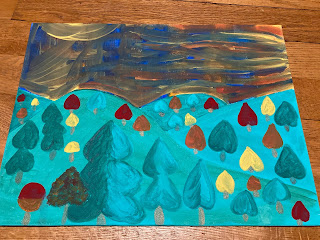FROM NANOWRIMO HANDBOOK 101:
Think of books you’ve read recently. Which were novels? Which weren’t? Choose one of those books, preferably one that you really like a lot or just know inside and out. Write the name of that book and its author here:

My Model Novel (title)
Around The World In 80 Days
By (author)
Jules Verne
For the rest of your novel-writing adventure, think of that book as a model you can use when you get stuck. You don’t have to imitate it—and you never want to copy it, of course—but you can always look at it for ideas. Just think of that novel’s author as your own personal novel-writing coach.
Light up the noveling part of your brain! Jot down a few sentences about what you loved or remember the most about your Model Novel.
This book surprised me with the depth of description of London. Compared to the original French, there were no embellishments lost in translation. M. Verne know London well.
Now, fill in the blanks below. (This is easier if you have your Model Novel with you.)
1. Who are the important characters in your model novel?
Passe-Partout
2. Which character do you think is the most important? Why?
Finneas Fogg, because without whom, the adventure would not happen.
3. What is the book mostly about? What is the central conflict, or major problem?
The voyage they took was the adventure. There were many little challenges, but the major problem was Finneas' own habit of keeping to a timed schedule.
4. Whose perspective is the novel written from (as in, who is telling the story)? How do you know?
A narrator
5. What point of view does the author use? Here are some options:
* 1st person (The person telling the story is a character in the story, using “I.”)
* 3rd person (The story is told by an outside narrator, not a person in the story.)
* 2nd person (The story is addressed to “you.” This is very rare!)
* Multiple perspectives (more than one of the above is used)
Third person
6. How does the novel begin?
In the study with many clocks at Phineas Fogg's residence where Passe-Partout is applying for a position.
7. Where and when does it take place, generally?
1872, London
8. What is your favorite thing about this novel (such as “The quirky characters.” or “The
suspenseful plot.”?
The consistent person of Finneas Fogg defeating the odds and winning the bet, thanks to the sacrifices and loyalty of Passe-Partout.
The characters
Now that you’ve explored how and why your novel makes a good model, you’re ready to present it to classmates with a book talk. Don’t worry; a book talk is not a book report. You don’t have to describe everything that happens in the book in excruciating detail. Instead, a book talk is like an advertisement for the book, or a movie trailer.
Your job is to give your audience just enough information to want to wrestle that book out of your hands and read it themselves. Take a look at this book talk, for example, about the real novel When You Reach Me by Rebecca Stead.
Have you ever wondered what it would be like to know what’s going to happen in the future? Well, what if somebody else could tell you, but only communicated by sending mysterious messages? In When You Reach Me by Rebecca Stead, 12-year-old Miranda starts finding notes about events in her future—that end up coming true! All of a sudden Miranda’s life is turned upside down: her mom’s apartment key is stolen, her best friend Sal will no longer talk to her, and the anonymous notes start hinting that something dangerous is about to happen. Miranda realizes that she may be the only one able to prevent a tragedy, and maybe even change the future.
After reading this book talk, you know the basics of When You Reach Me: its title, its author, its main character, and some important things happening in the main character’s life. But you probably have a bunch of questions, too. How is Miranda getting the messages? Are they really warnings from the future, or is something else going on? Why did her best friend stop talking to her? Perhaps you are curious enough to check out this book for yourself!
As you can see, a book talk simply gives the audience a “taste” of the book.
Below, prepare your own book talk about your Model Novel. Think of structuring it like this: a hook to grab attention; a topic sentence to introduce the title, author, main character and set-up of the book; and a few more sentences to describe important events or details. And remember, if you sound excited about the book, your audience will be excited too!
Love It or Leave It
Of all the books you’ve read so far in your life, there were probably some that were ridiculously fun to read, and some that were just about as fun as visiting the dentist on your birthday. Before you start thinking about the novel you’ll be writing, it’s helpful to write down what makes you, personally, love a book and what makes you want to leave a book.
Love It
Let’s start by making a list of books you love. Think about all the novels you’ve read that you couldn’t put down no matter how tired you were or how much unfinished homework was piling up all around you. In the spaces below, write down the title and author of three books you love:
The Guernsey Literary and Potato Peel Pie Society
Natural Born Heroes
Full Tilt
Now, make a list of everything that made those books so amazing. Why were the characters so fascinating? What made you so excited to keep turning the page? You can be as general or as detailed as you like; include anything from “adventurous characters” to “high school drama” to “hilarious and realistic dialogue.”
Layers of complexity
Gripping storytelling
Adventure
Once you've finished this list, keep it with you at all times as you write your novel. Why is this list so important? Because, as you might imagine, the things you like as a reader are going to be things you also love writing. As you work on your story, refer to this list of ingredients, and consider adding them to your novel when you're stuck for ideas or directions.
Leave It
Now, think about all those books you’ve read or started to read that put you to sleep by the end of Page One. You know, the ones that you’d rather eat a mayonnaise, peanut butter, and onion sandwich than have to read again. In the spaces below, list the title and author of three books you really did not like reading.
The Casual Vacancy
The Old Man and the Sea
The Secret Life of Bees
Now, write a list of things that made those books so awful for you. Were the characters unlikeable or unrealistic? Did the story events move too slowly, or not make sense? Did you think to yourself "I could totally have done a better job than these authors"? Again, you can be as general or as detailed as you like; include anything from “cheesy endings” to “painfully boring dialogue.”
Unreadable
Didn't care about the character
Boring
Toxic masculinity
Incest
Just like the list of things you love in a book, keep this list with you as you write. It might seem strange that you would have to remind yourself of the things you dislike in novels, but these items are experts in the art of ending up in your story without you even realizing it.



 When I was growing up, we sang a song about friendship called, "Silver and Gold". The lyrics go like this:
When I was growing up, we sang a song about friendship called, "Silver and Gold". The lyrics go like this: 












































